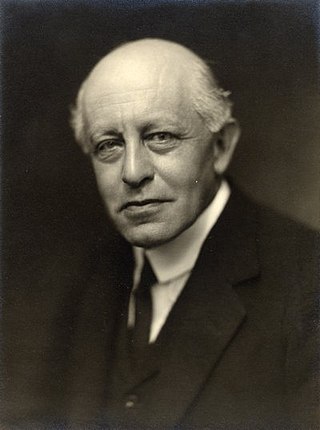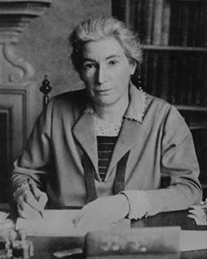External links
| | This British science and technology magazine-related article is a stub. You can help Wikipedia by expanding it. See tips for writing articles about magazines. Further suggestions might be found on the article's talk page. |
The Psychologist is the monthly publication of the British Psychological Society. It provides a forum for communication, discussion and controversy among all members of the society and it helps promote the advancement and diffusion of knowledge of psychology, pure and applied. The Psychologist is read by more than 50,000 members in print, and many non-members read the online version. [1] It was launched in 1988, incorporating the existing Bulletin of the British Psychological Society. [2] The 2016 issues are volume 29. [3]
Dr Jon Sutton, who joined the Society in March 2000, from a psychology lectureship at Glasgow Caledonian University, is the Managing Editor. [1]

Industrial and organizational psychology is the science of human behavior in the workplace. It is an applied discipline within psychology. Depending on the country or region of the world, I-O psychology is also known as occupational psychology in the United Kingdom, organisational psychology in Australia and New Zealand, and work and organizational (WO) psychology throughout Europe and Brazil. Industrial, work, and organizational (IWO) psychology is the broader, more global term for the science and profession.

Psychology is the scientific study of mind and behavior in humans and non-humans. Psychology includes the study of conscious and unconscious phenomena, including feelings and thoughts. It is an academic discipline of immense scope, crossing the boundaries between the natural and social sciences. Psychologists seek an understanding of the emergent properties of brains, linking the discipline to neuroscience. As social scientists, psychologists aim to understand the behavior of individuals and groups. Ψ (psi), the first letter of the Greek word psyche from which the term psychology is derived, is commonly associated with the science.

The American Psychological Association (APA) is the largest scientific and professional organization of psychologists in the United States, with over 146,000 members, including scientists, educators, clinicians, consultants, and students. It has 54 divisions—interest groups for different subspecialties of psychology or topical areas. The APA has an annual budget of around $125 million.

A psychologist is a professional who practices psychology and studies mental states, perceptual, cognitive, emotional, and social processes and behavior. Their work often involves the experimentation, observation, and interpretation of how individuals relate to each other and to their environments.

Clinical psychology is an integration of human science, behavioral science, theory, and clinical knowledge for the purpose of understanding, preventing, and relieving psychologically-based distress or dysfunction and to promote subjective well-being and personal development. Central to its practice are psychological assessment, clinical formulation, and psychotherapy, although clinical psychologists also engage in research, teaching, consultation, forensic testimony, and program development and administration. In many countries, clinical psychology is a regulated mental health profession.
The British Psychological Society (BPS) is a representative body for psychologists and psychology in the United Kingdom.

Together, legal psychology and forensic psychology form the field more generally recognized as "psychology and law". Following earlier efforts by psychologists to address legal issues, psychology and law became a field of study in the 1960s as part of an effort to enhance justice, though that originating concern has lessened over time. The multidisciplinary American Psychological Association's Division 41, the American Psychology-Law Society, is active with the goal of promoting the contributions of psychology to the understanding of law and legal systems through research, as well as providing education to psychologists in legal issues and providing education to legal personnel on psychological issues. Further, its mandate is to inform the psychological and legal communities and the public at large of current research, educational, and service in the area of psychology and law. There are similar societies in Britain and Europe.

Charles Samuel Myers, CBE, FRS was an English physician who worked as a psychologist. Although he did not invent the term, his first academic paper, published by The Lancet in 1915, concerned shell shock. In 1901 he was one of the ten founding members of The Psychological Society, which would later become the British Psychological Society. In 1921 he was co-founder of the National Institute of Industrial Psychology.

Health psychology is the study of psychological and behavioral processes in health, illness, and healthcare. The discipline is concerned with understanding how psychological, behavioral, and cultural factors contribute to physical health and illness. Psychological factors can affect health directly. For example, chronically occurring environmental stressors affecting the hypothalamic–pituitary–adrenal axis, cumulatively, can harm health. Behavioral factors can also affect a person's health. For example, certain behaviors can, over time, harm or enhance health. Health psychologists take a biopsychosocial approach. In other words, health psychologists understand health to be the product not only of biological processes but also of psychological, behavioral, and social processes.

The Australian Psychological Society (APS) is one of the professional associations for psychologists in Australia. The APS had more than 27,000 members in 2005, making it the largest professional body representing psychologists in Australia at that time. The Society's Code of Ethics was adopted in 2007 and became the Code of Ethics for the profession in Australia in 2010 when it was taken up by the newly formed Psychology Board of Australia. The APS also provides members with recommendations of appropriate fees to charge for their professional services.
Lisa Feldman Barrett is professor of psychology at Northeastern University, where she focuses on affective science. She is a director of the Interdisciplinary Affective Science Laboratory. Along with James Russell, she is the founding editor-in-chief of the journal Emotion Review. Along with James Gross, she founded the Society for Affective Science.

Mahzarin Rustum Banaji FBA is an American psychologist of Indian origin at Harvard University, known for her work popularizing the concept of implicit bias in regard to race, gender, sexual orientation, and other factors.

Beatrice Edgell was a British psychologist, researcher and university teacher. She taught at Bedford College in the University of London from 1897 to 1933. She was the first British woman to earn a PhD in psychology and the first British woman to be named a professor of psychology. She was also the first female president of the British Psychological Society, the Aristotelian Society, the Mind Association and the Psychological Division of the British Association for the Advancement of Science.

Francesca Gabrielle Elizabeth Happé is Professor of Cognitive Neuroscience and Director of the MRC Social, Genetic and Developmental Psychiatry Centre at the Institute of Psychiatry, Psychology and Neuroscience, King's College London. Her research concerns autism spectrum conditions, specifically the understanding social cognitive processes in these conditions.
The Otto Weininger Memorial Award for lifetime achievement is given annually by the Canadian Psychological Association Psychoanalytic Section to a psychoanalytic or psychodynamic psychologist who has demonstrated outstanding clinical, empirical, or theoretical contributions in the areas of psychoanalytic or psychodynamic psychology.

Florence Harriet Levin Denmark is an American psychologist and a past president of the American Psychological Association (APA) (1980-1981). She is a pioneering female psychologist who has influenced the psychological sciences through her scholarly and academic accomplishments in both psychology and feminist movements. She has contributed to psychology in several ways, specifically in the field of psychology of women and human rights, both nationally and internationally.
The Psychological Society of Ireland/ Cumann Síceolaithe Éireann (PSI) is the learned and professional body for psychology and psychologists in the Republic of Ireland.

Kerry Lynn Gibson is a South African-New Zealand clinical psychologist and academic, specialising in youth mental health. She is currently the Deputy Head of School (Academic) for the School of Psychology at the University of Auckland. Gibson was the president of the New Zealand Psychological Society, from 2014 until 2016.
The New Zealand Psychological Society (NZPsS) is one of the professional associations for psychologists in New Zealand. It is the largest professional body for psychologists in New Zealand, providing for both research psychologists and practicing psychologists.